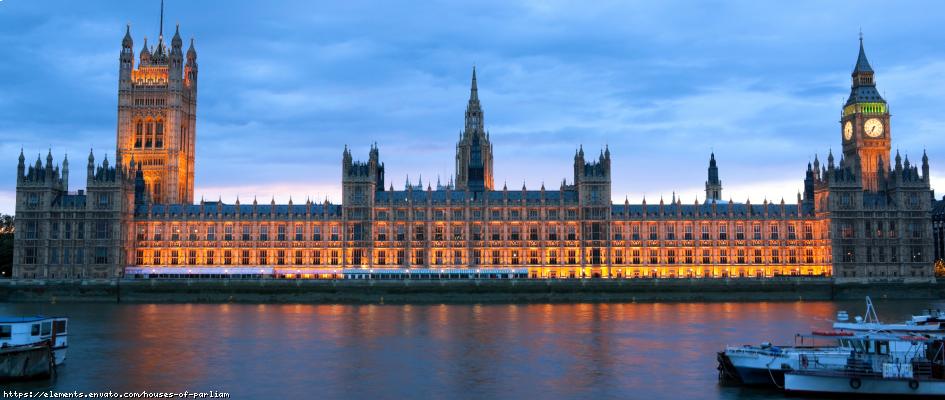Jeremy Hunt unveiled his first Budget as Chancellor last week and, as usual, the UK’s small business owners will have been watching closely to find out what the impact – whether positive or negative – of any new measures will be for their companies.
Overall, the reaction to the Budget from the small business community has largely been mixed to negative, with praise for some measures that will benefit small business owners, but criticism at the lack of specific, targeted measures to help the UK’s SMEs.
So, what does the Spring Budget actually mean for small businesses? Here are the main measures that could have an impact for SME owners.
Energy bills
One of the main issues impacting SMEs over the past year has been the soaring cost of energy, a crisis that has pushed a huge number of businesses into insolvency, despite the government’s Energy Bill Relief Scheme (EBRS). As a result, SME owners will have been eagerly watching for any help the government would provide over the forthcoming year.
On this front, owners may have been disappointed, if not surprised, at what the Chancellor announced. From April 1st, the new Energy Bill Discount Scheme (EDBS) will come into effect, providing owners with a discounts on the unit rates of all eligible electricity contracts and non-domestic gas for the next year.
The EDBS offers businesses a significant amount less help than the previous EBRS. While the new scheme is not a price cap, it effectively lowers the help being provided from £18 billion to around £5.5 billion and meaning that owners face significantly higher bills starting next month.
Childcare
One measure that has been largely welcomed by the SME community is the £4 billion boost to childcare announced in the Budget, which will see parents of one and two-year-olds receiving an extra 30 hours-a-week of free childcare. Furthermore, the Chancellor announced that support will be gradually rolled out until every eligible working parent of a child/children under five gets this level of support by September 2025.
For working parents operating or looking to start a small business, this is clearly good news, removing one of the major obstacles that has historically forced parents to choose between prioritising their business or their family.
Corporation tax
Perhaps the main aspect of the Budget from a business standpoint was the issue of corporation tax. As expected the Spring Budget brought confirmation that the main rate of corporation tax will increase from 19 per cent to 25 per cent starting April 6. The highest rate will be paid by companies with profits of over £250,000, while companies with profits of £50,000 or less will continue to pay the 19 per cent rate.
Companies making profits between £50,000 and £250,000 will experience a gradual increase in tax, but will still be eligible for marginal relief. The tax rate will rise gradually from 19 per cent to the main rate, thus preventing SMEs from being hit with the full 25 per cent rate immediately. However, this hike ultimately represents the largest increase in corporation tax since the 70s.
Innovative businesses
Another point that has been well received by the SME community is the newly announced enhanced R&D tax relief rate, designed to boost innovative UK businesses. The new policy will mean that SMEs investing more than 40 per cent of their operating costs into R&D without yet making a profit will receive 27p in cash for every £1 invested. Loss-making SMEs who have invested less will receive the lower 18p relief rate announced in the Autumn Statement last year.
This has been enormously well received by small business figures from the medical and life sciences industries, with Steve Bates OBE, CEO of the UK BioIndustry Association, saying: “This is a huge boost for biotech companies across the UK developing new medicines and improving healthcare for patients. Our research-intensive industry is a key growth area for Britain’s economy. The Chancellor is rightly focusing UK taxpayer support to enable life science entrepreneurs to crowd in more private investment, help keep the UK at the cutting-edge of international science, and create new high-value jobs across the UK.”
What’s been said?
Overall, the reaction to the Budget and the lack of specific SME-focused support has been fairly negative. One particularly scathing response came from Martin McTague, National Chair of the Federation of Small Businesses.
McTague commented: “The Chancellor has set high expectations for supporting small firms during these challenging times, but today’s Budget will leave many feeling short-changed. The distinct lack of new support in core areas proves that small firms are overlooked and undervalued. Budgets are about tough choices, and with today’s £billions being allocated to big businesses and households, 5.5million small businesses and the 16 million people who work for them will be wondering why the choice has been made to overlook them.”
“We’ve got a Budget that on energy helps households but not small firms. On business taxes, it spends £27bn extra on big businesses, arguing that small businesses are already catered for. This will leave to a feeling of being left behind instead of being considered equal partners in economic recovery - trickledown economics here simply does not work.”
Meanwhile, Sarah Austin, Founder and Awards Director of the British Business Excellence Awards, praised the measures to support innovative business and new childcare reforms, but also said the Budget was “light on the ground for other tangible benefits to SMEs in other industries, aside from the science and technology fields.”
She continued: “This is a worry, off the back of the Federation of Small Businesses warning that over 350,000 small businesses stand to downsize, restructure or close altogether due to the lack of SME-targeted energy bill relief.”
In closing, Austin characterised the Budget as “much more of a tinkered plan of action, than a business-focussed regeneration announcement.” This largely encapsulates the frustration many SME owners will have felt at the Budget.


